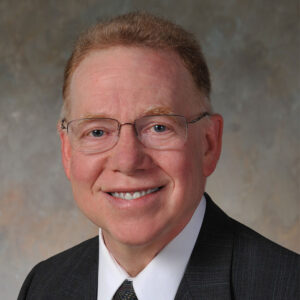 Community practice rheumatology may be a less-followed path within the specialty, and it brings with it certain challenges. However, it also offers rewards, such as autonomy and deep relationships with patients. The Rheumatologist recently interviewed three community practice rheumatologists from around the U.S. to find out about their approaches to patient management, staffing and other areas of the practice. Here’s what they shared.
Community practice rheumatology may be a less-followed path within the specialty, and it brings with it certain challenges. However, it also offers rewards, such as autonomy and deep relationships with patients. The Rheumatologist recently interviewed three community practice rheumatologists from around the U.S. to find out about their approaches to patient management, staffing and other areas of the practice. Here’s what they shared.
Staffing
As in many other medical settings, staff recruitment can be a challenge for rheumatology private practices. Some of this is due to the aftereffects of the COVID-19 pandemic; other times, it’s due to a shortage of trained workers within certain roles. At Pacific Rheumatology Associates in San Francisco, few job seekers are looking for medical assistant, receptionist or infusion nurse positions, says Molly Magnano, MD. The practice has four rheumatologists and does not have advanced practice providers.
Retirements also play a role in staffing challenges. At its peak, the Arthritis Center of Nebraska in Lincoln had five rheumatologists. It’s down to two now because of retirements. It also has five advanced practice providers, says Rick Chatwell, MD. “The addition of advanced practice practitioners has allowed us to maintain an appropriate [number] of office visits to support our practice,” says Dr. Chatwell, who has been with the practice since 1991.

Dr. Magnano
The ability to pay a salary competitive with those offered at local hospitals is a challenge, Dr. Chatwell says. “Ultimately, our employees favor the work-life balance that a private practice offers. They may consider slightly lower wages a favorable trade-off for not working nights, holidays and weekends,” he says.
To help boost retention, Pacific Rheumatology Associates provides health insurance, a retirement plan and paid overtime, says Dr. Magnano.
At New England Rheumatology & Osteoporosis, Henniker, N.H., staff followed Todd Daugherty, MD, when he moved from a hospital-based system to a private practice that opened just a couple of weeks before the pandemic began in March 2020. A solo practitioner, Dr. Daugherty says his office staff is stable because he can offer a workplace that is a good fit for employees.
Patient Management
With all the responsibilities a rheumatologist has in private practice, the perception may be that patient visits are kept short to meet demands. Actually, the opposite is true. “While my clinic days are busy, the best part about owning my own practice is the autonomy I have to take as long or as little time as I need to see each patient,” Dr. Magnano says. The same is true at the Arthritis Center of Nebraska. “We have worked hard to design our practice and schedule to give both patients and providers time to have meaningful office visits,” Dr. Chatwell says. Return office visits are usually 15–20 minutes with physicians and 30 minutes with advanced practice practitioners. If needed, an extended visit may be offered, he adds.

Dr. Chatwell
The rheumatologists interviewed had mixed reviews on whether telemedicine has continued to work well for them beyond the pandemic.
Dr. Chatwell says his practice isn’t using telemedicine currently because of the inability to physically examine the patient, the complexity of multisystem diseases and the need for lab monitoring for certain medications.
Dr. Magnano uses one of her four clinic days each week for a virtual clinic, done from her home office. These appointments enable her to deliver test results, establish a diagnosis after an in-person consultation and provide routine follow-up care for stable patients.
Dr. Daugherty’s office uses telemedicine because some patients have to travel long distances to get to the office. “We emphasize the need for in-office visits as well so we can ensure optimal safe and effective care,” he adds.
Another major patient care issue is deciding who will handle prior authorizations. At the Arthritis Center of Nebraska, staff, most of whom are registered nurses, handle this task. The practice tried third-party vendors in the past, but they had so many questions that it wasn’t a time-saving option, Dr. Chatwell explains. “Insurance companies and pharmacy benefit managers continue to hamper or delay our ability to care for patients,” he says.
Prior authorization is also done in house at Pacific Rheumatology, managed by three well-trained medical assistants, Dr. Magnano says.
At times, community practice rheumatologists must refer patients to academic centers. Geography can play a big role in this option, with Dr. Daugherty mentioning his close location to medical resources in Boston.
Dr. Chatwell says that getting patients into academic medical centers may take months, even when they pass the screening process. “When we have a personal physician-to-physician connection, a curbside opinion may be timely, but their availability for new patients is still limited,” he says.

Dr. Daugherty
To handle patient education, community practice rheumatologists use the range of resources available to them, and it’s often all hands on deck in terms of staffing to help with education. An initial patient consultation will include education regarding the disease process and medications involved. Before infusion of a new medication at Arthritis Center of Nebraska, an advanced practice provider will meet with a patient to discuss the rationale, infusion process and potential risks and benefits, Dr. Chatwell says.
At Pacific Rheumatology, medical assistants provide injection training.
Resources used at these practices include product pamphlets, non-sponsored informational handouts, ACR publications and more.
The Biggest Challenges
Working as a community practice rheumatologist has challenges, some of which are faced in academic and research settings and others that are more specific to private practice. For example, the staffing concern in rheumatology is a real issue because of a growing population in need of this specialized care, Dr. Chatwell says. “Younger rheumatologists often have never had any exposure to private practice and the benefits that it can offer. We are the front line of rheumatologic care,” he says. This is one reason he thought it was important to participate in the ACR’s new Community Practice Council, made up of rheumatology professionals from small or independent practices, as well as two slots for fellows.
Dr. Magnano also sees staffing as major challenge, in addition to inconsistent practice income and navigation of the insurance contracting landscape. “I think that contracting with payers may be the ultimate demise of private practices, simply because private practices lack the leverage of larger, more corporate groups to negotiate evaluation and management reimbursement that keeps pace with inflation,” she says. She notes that overhead costs have increased 6–8% annually since the pandemic but that reimbursement is stagnant or falling. “To continue to provide excellent care, we need to be able to negotiate more lucrative contracts or become more creative in our efficiencies and overhead cost containment,” Dr. Magnano says.
To help address the challenge of overhead costs and running a business, Dr. Daugherty’s practice is a member of American Arthritis and Rheumatology Associates/Bendcare, a group of independent practices that are owners and customers of a rheumatology cooperative operating in 23 states with more than 300 providers. “This organization understands our needs in a way that hospital-based systems do not prioritize and simply don’t understand. We access many services from our supergroup,” he explains.
The Rewards of Community Practice
Rheumatologists in private practice can still follow research avenues or special areas
of interest. Learn more here.
Despite the challenges of working as private practice rheumatologists, there are also many rewards. Dr. Daugherty sees a leadership role for private practice rheumatologists in such areas as precision medicine and healthcare economics.
“Having the flexibility to go the extra mile for my patients is the most rewarding aspect of private practice,” says Dr. Magnano. “Because I have the ultimate autonomy in patient care, I have the time and flexibility to make extra calls to patients late at night or circle their other doctors together to develop a thoughtful care plan. I think that patients really value this extra effort and are truly appreciative for my care.”
At Dr. Daugherty’s practice, relationships run so deep with patients that three insurers initially did not offer him a contract because they said they had enough rheumatologists on their panels. After “countless hours” on the phone with patients, they ultimately offered contacts. “It was their advocacy for their healthcare that made these major corporations change their decisions,” he says.
Dr. Chatwell appreciates the control he has over running his practice. “[It] gives me contentment and peace of mind,” he says. “We’re not directed by a faceless administration. If we make a change to our practice and it’s not helpful, then we have the ability to correct the problem without going through another committee.
“I would encourage all rheumatologists, whether new or experienced, to give private practice a look. I think they will be pleasantly surprised with the rewards and the autonomy.”
Vanessa Caceres is a medical writer in Bradenton, Fla.

